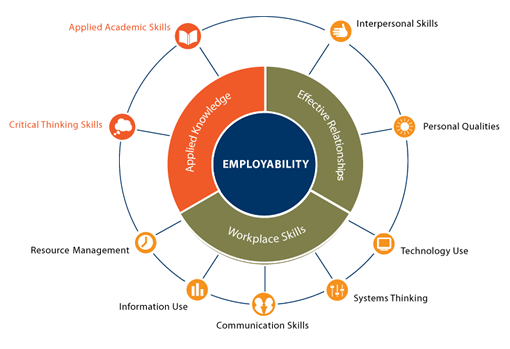Why Employability Skills? Successful careers are built on solid personal and interpersonal skills. Defining, measuring, and building these skills— even naming them— can be challenging. In an effort to leverage and connect the efforts of policy makers, educators, and employers, the U.S. Department of Education compiled the Employability Skills Framework and developed related tools, media and resources.
OCTAE Contact
In 2025, the U.S. Department of Education's Office of Career, Technical, and Adult Education (OCTAE) launched the Employability Skills Framework 2.0 project to address the critical need to modernize its widely-used Employability Skills Framework (2018) to ensure it remains relevant and effective in preparing the workforce. The modernized Employability Skills Framework 2.0 will assist in promoting social mobility by equipping students, educators, educational agencies, employers, and partners with evidence-based tools, media, and resources. These assets will assist in facilitating the exploration, instruction, and assessment of agile, adaptive skills while advancing career development, workforce preparation, and the recognition of human potential.
The Employability Skills Framework 2.0 project began with a pre-phase to establish the foundation for modernizing the framework. The pre-phase focused on identifying and summarizing resources that provide insights into the current and emerging landscape of employability skills. This foundational environment scan, analysis, and synthesis will help inform the modernization of the framework through subsequent phases.
Stay tuned to this page for updates to the Employability Skills 2.0 project as they are developed, in the meantime, click on the “Employability Skills (2018) tab to access the original resources.
Related Links
This report summarizes the analysis and synthesis of resources identified in a broad environment and literature scan, including frameworks, research reports, policy and guidance documents, and instructional or program materials. The resources provide information to address key research questions aimed at defining employability skills in 2025.
- National Initiatives
- Career Counseling
- Technical Skills Assessment & Certification
- Articles and Publications

